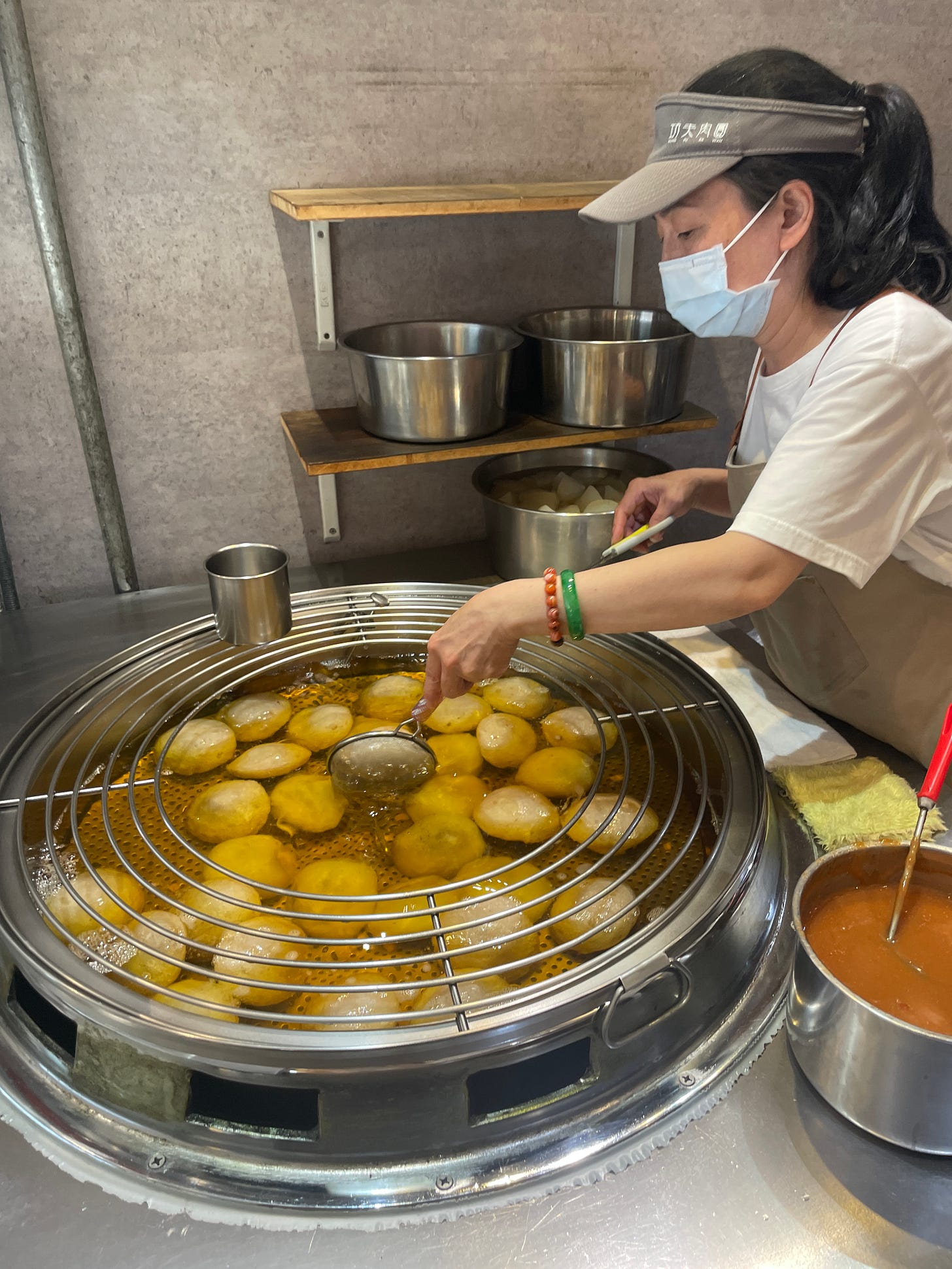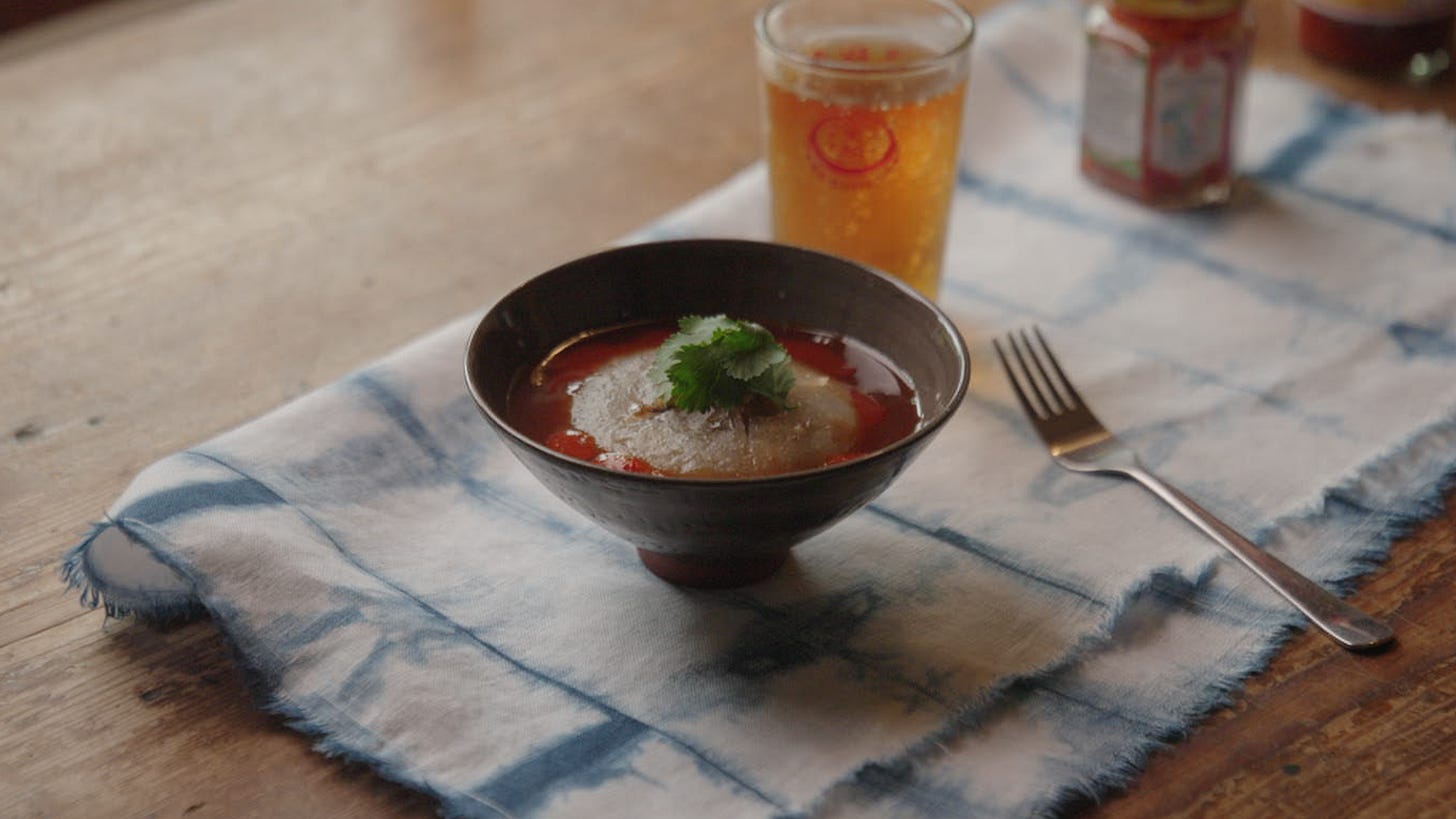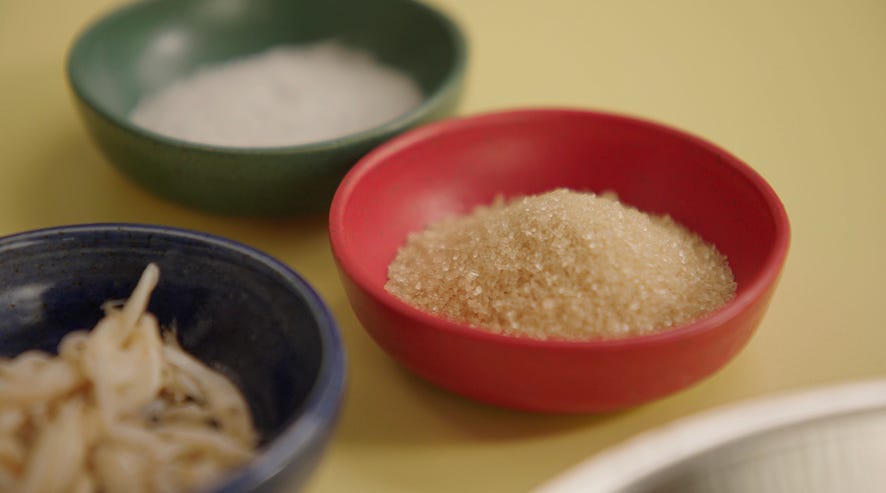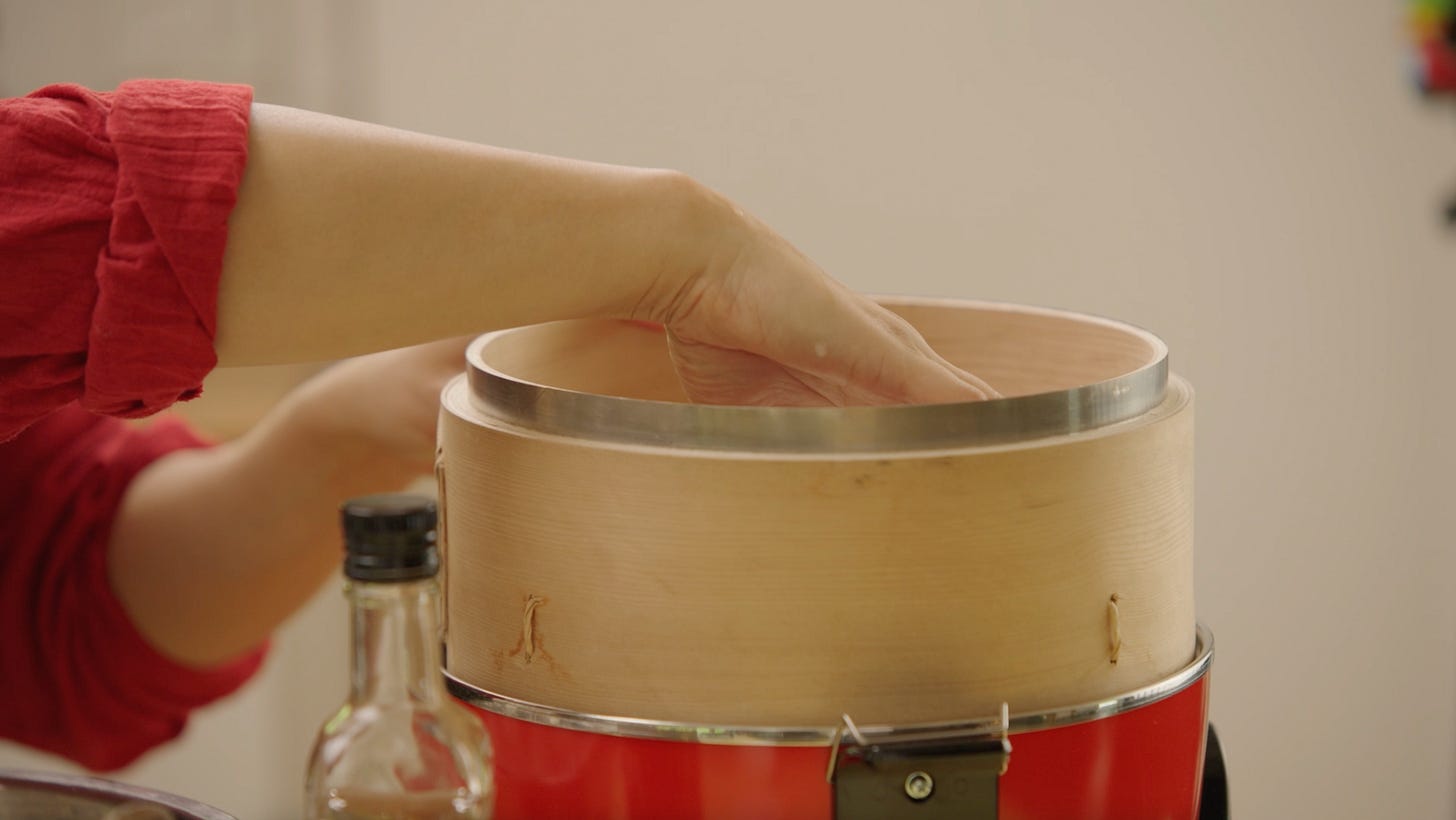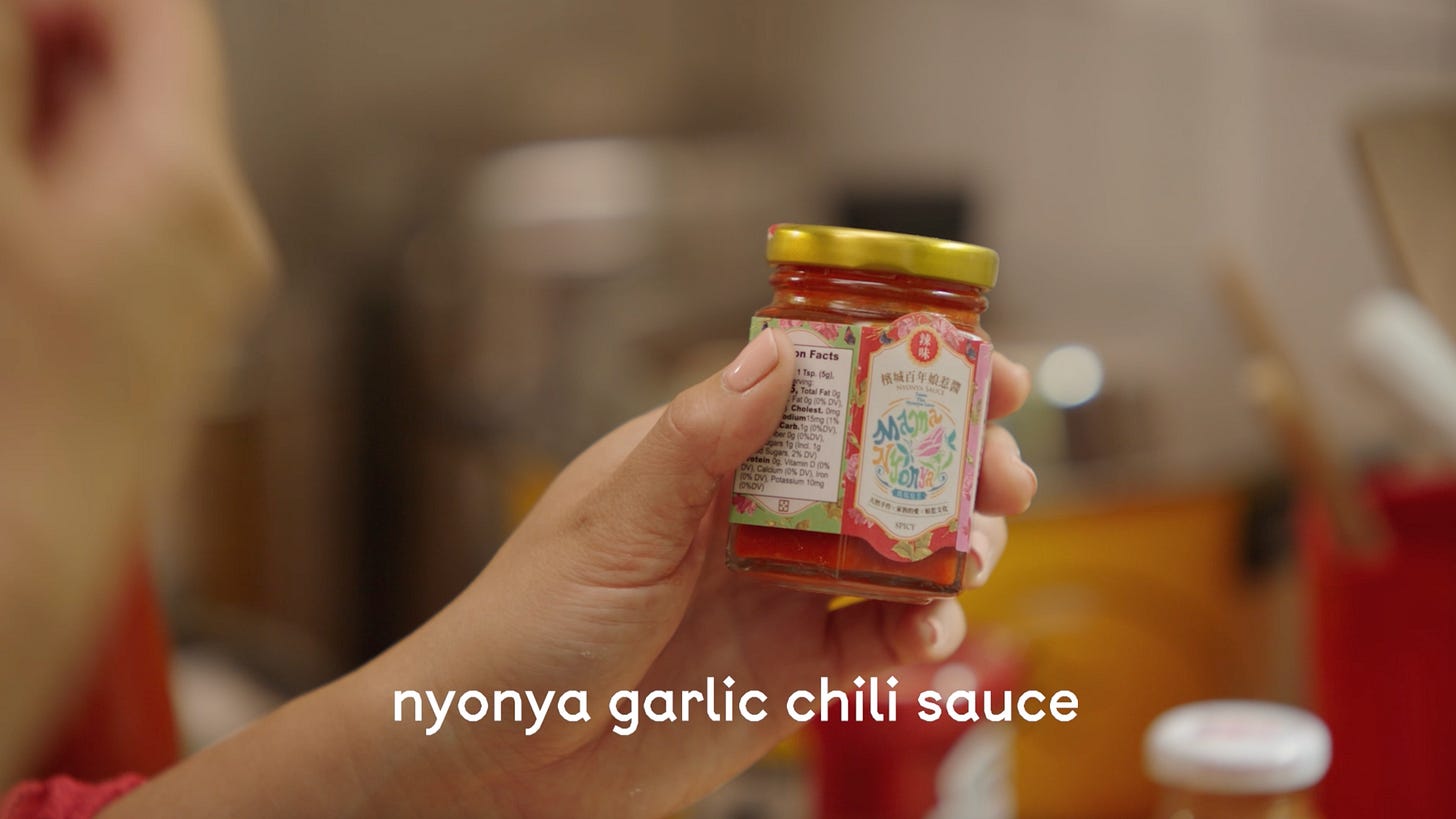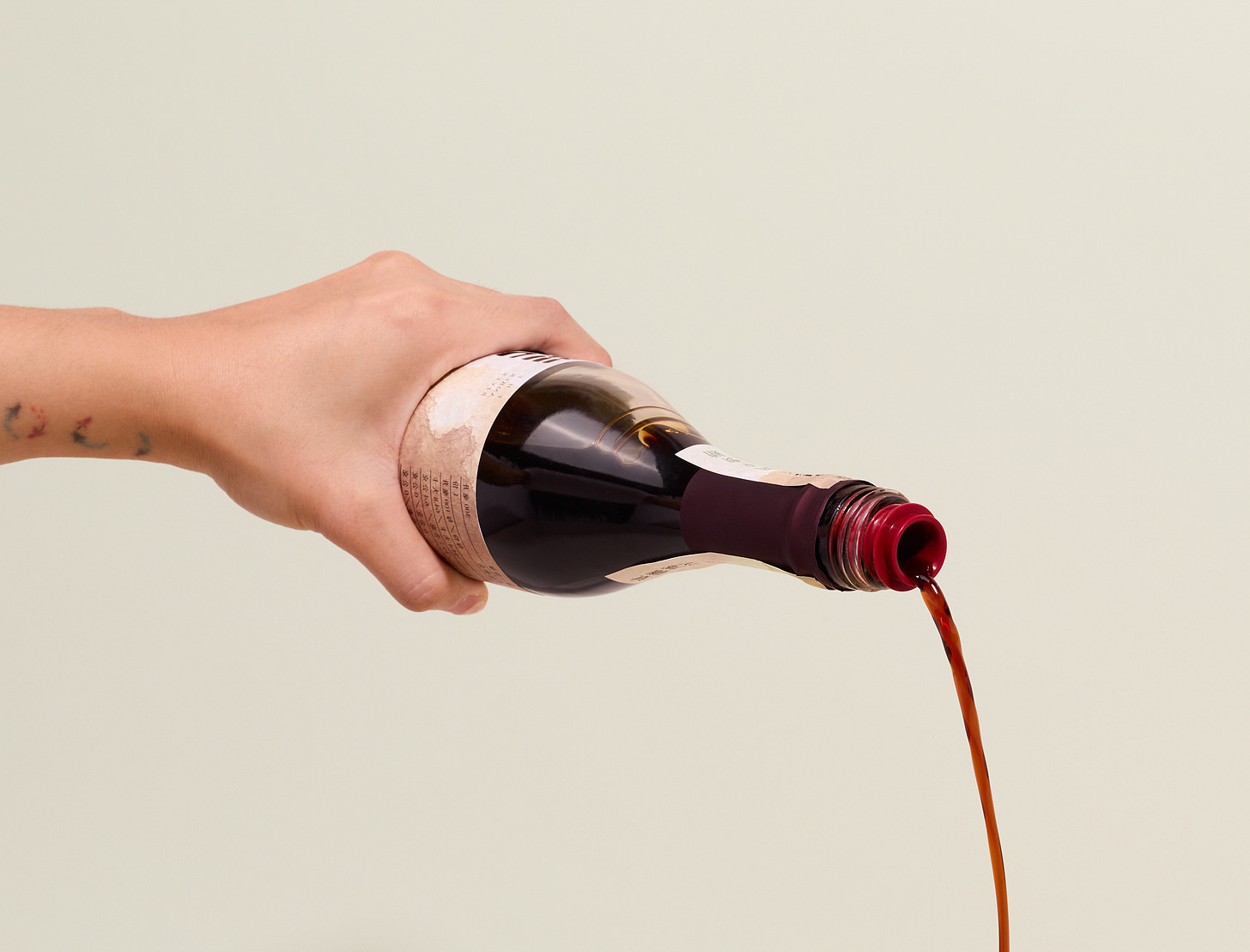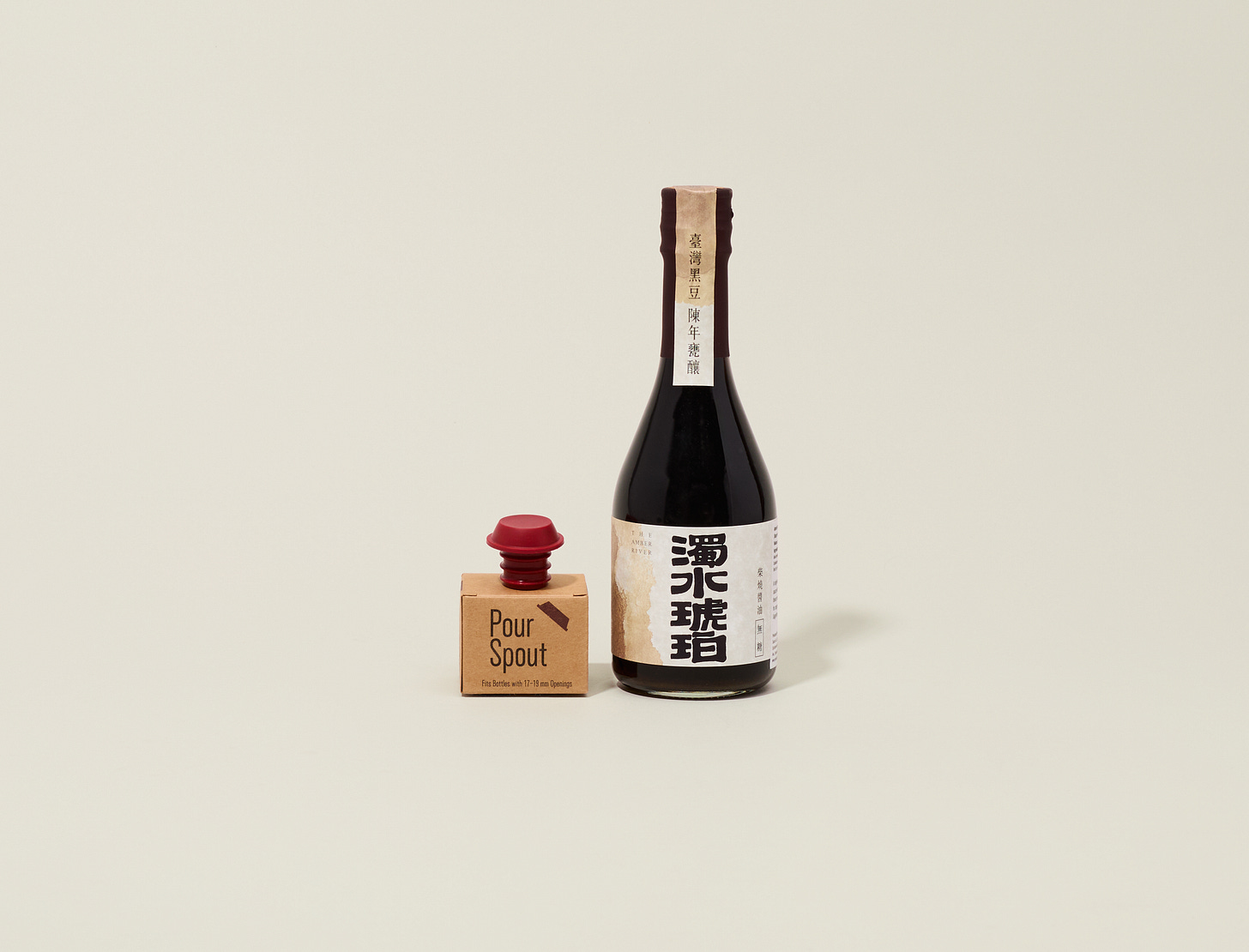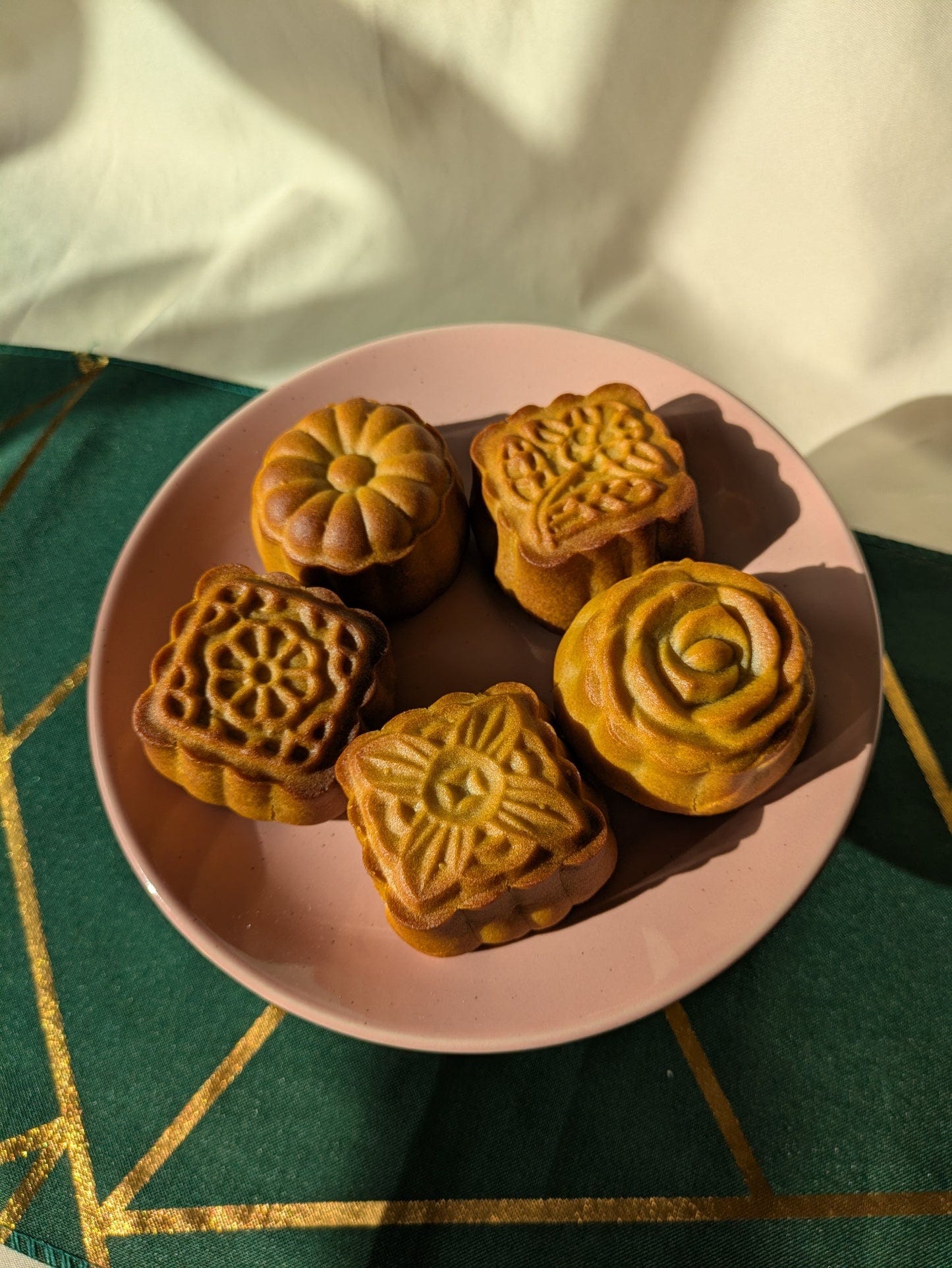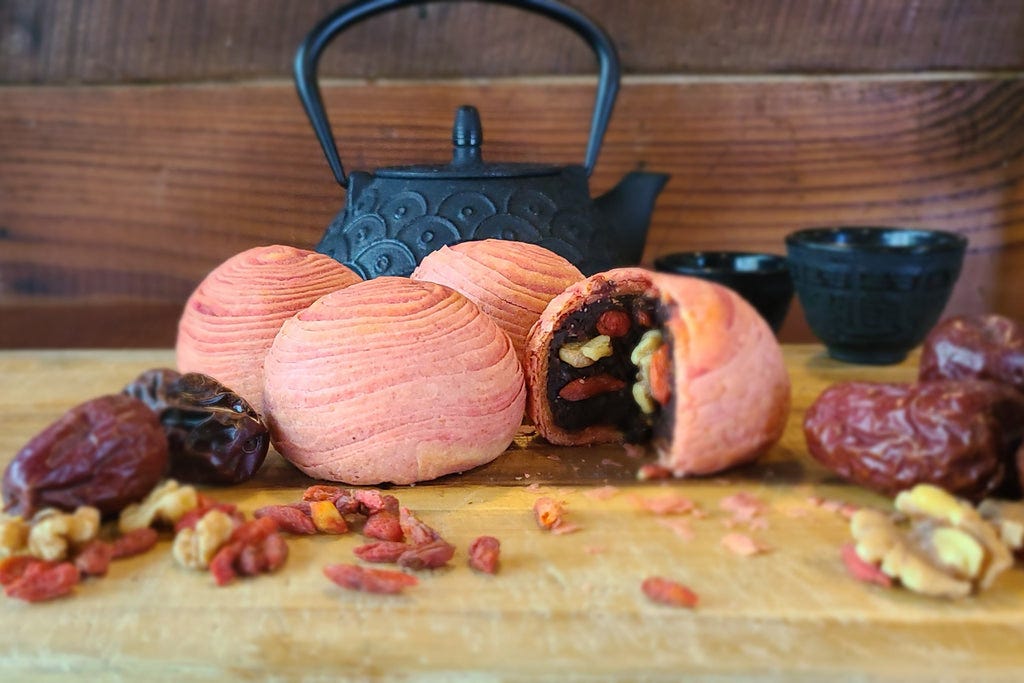Cooking With Steam S201: Taiwanese Bawan
elusive, enigmatic, and sloppy
This is Yun Hai Taiwan Stories, a newsletter about Taiwanese food and culture by Lisa Cheng Smith 鄭衍莉, founder of Yun Hai. If you aren’t yet a subscriber, sign up here.
This week, I’m thrilled to share Season Two of Cooking with Steam, our self-produced Taiwanese cooking show. It’s a true labor of love. We’ve been working on this with our friends at Night Shift Studios since June; you may have seen some behind-the-scenes content over the past few months.
This season is a little different from the first. Instead of focusing on the Tatung Electric Steamer, we’re featuring Taiwanese food in general. Steaming, and the idea of it, continues to guide our conversation, and represents a dedication to a gentler form of cooking and eating. The Tatung still features in many episodes, but we also cook in the wok and stockpot.
There’s nothing I love more than cooking with pals, and this season also features two guest hosts! Look for episodes with Jessie YuChen and Jess Wang, long time friends of the shop and giants of the Taiwanese food world, East Coast and West.
See the Season 2 introduction below, but keep scrolling for the first episode.
One more thing: if you happen to be a fan of our Taiwanese soy sauces, we just launched pour spouts. They’ll turn any soy sauce bottle of ours into an instant dispenser, table ready.
Actually still one more thing: Save the date for a Mid-Autumn Festival BBQ at our brick-and-mortar gamadiam in Brooklyn with Win Son Bakery the evening of Friday, October 10th. And if you’re looking for mooncakes, see our list at the very end for a few ways you can get them.
Cooking With Steam Season Two is here!
This season, I explore Taiwanese food through the lens of 古早味 gu zao wei. This phrase translates to “ancient flavor,” but largely refers to pre-war Taiwanese foods that represent a more agrarian diet. Dishes described this way often predate post-war food aid from the United States and the mid-20th century wave of Chinese migration. Rice, sweet potato, starches derived from tubers, pork, seafood, bamboo, and other ingredients easy to grow or procure in Taiwan itself feature prominently in this gu zao cuisine.
These types of dishes feel especially homestyle to me, but are often overshadowed by megastars like beef noodle soup and gua bao, which grew out of the relatively recent availability of beef and wheat in Taiwan.
I thought it might be nice to shine some light on older dishes this time ‘round. Season Two will feature Taiwanese bawan (crystal dumpling), braised pork rice (lu rou fan), hot grass jelly, tang yuan (glutinous rice dumplings), tofu skin salad, preserved radish omelet, and congee. Join me!
Season Two, Episode One: Taiwanese Bawan 肉圓
First up is Taiwanese bawan 肉圓, aka Taiwanese crystal dumpling. The name translates to meatball, but it’s actually a rich, pork and seafood-based filling encased in a dough made from rice flour and starches (no wheat). The texture is bouncy and chewy—also known as Q—and it’s usually served drenched in a savory, tangy sauce.
This classic food has seemingly endless variations, which differ by region, and even down to the specific shop. I would break them down for you, but I think it’s almost impossible to do that accurately, even in the seemingly endless space of this newsletter.
The consistency of the dough, the shape, and the filling can all vary. But beyond that, so can preparation: bawan might be steamed, slow simmered in oil, or deep fried, which all result in a different texture to the skin: soft, smooth and taut, or bubbly and crispy.
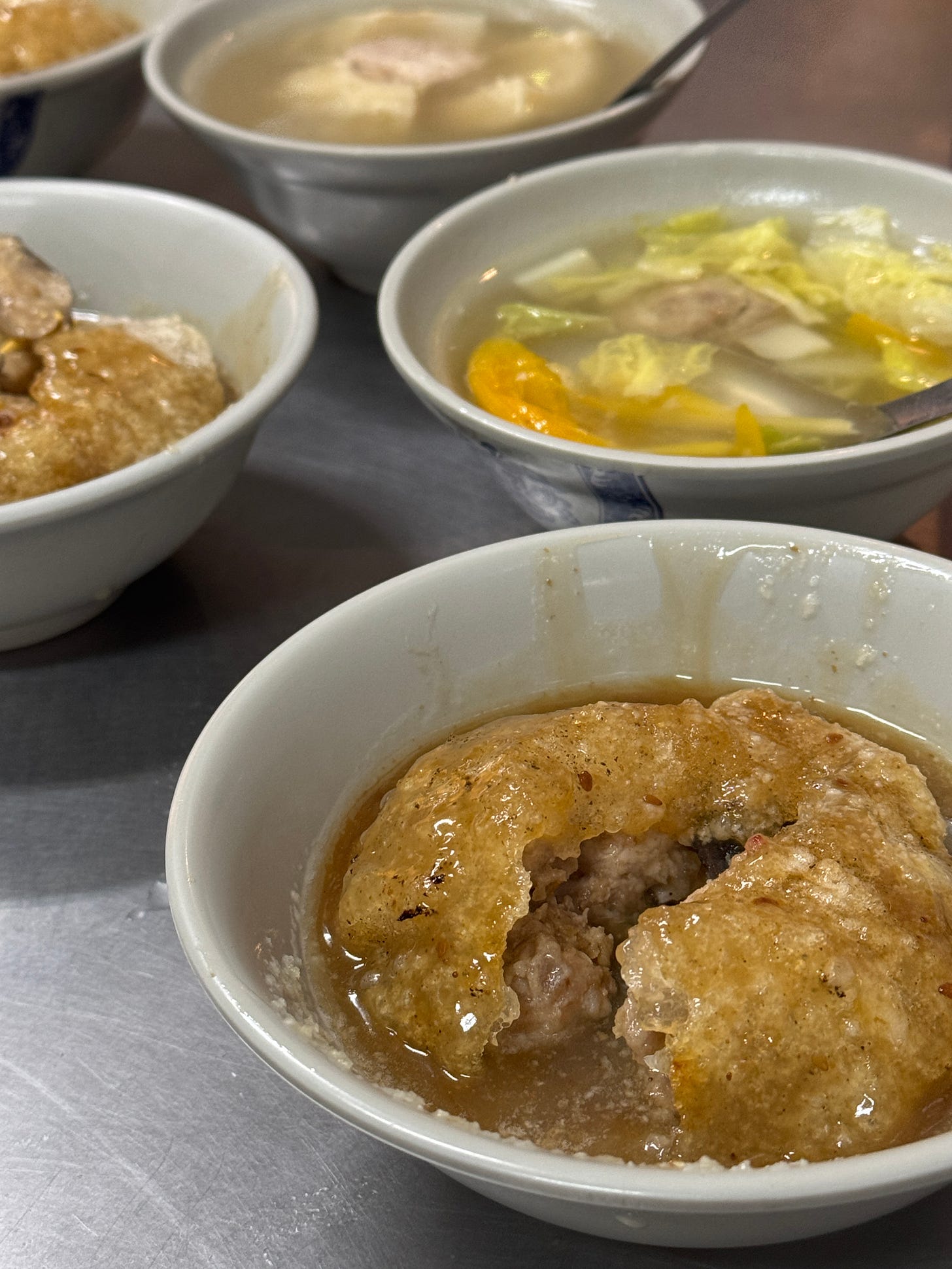
And, there’s the sauce. Some include ketchup, others plum powder, and others even rice milk.
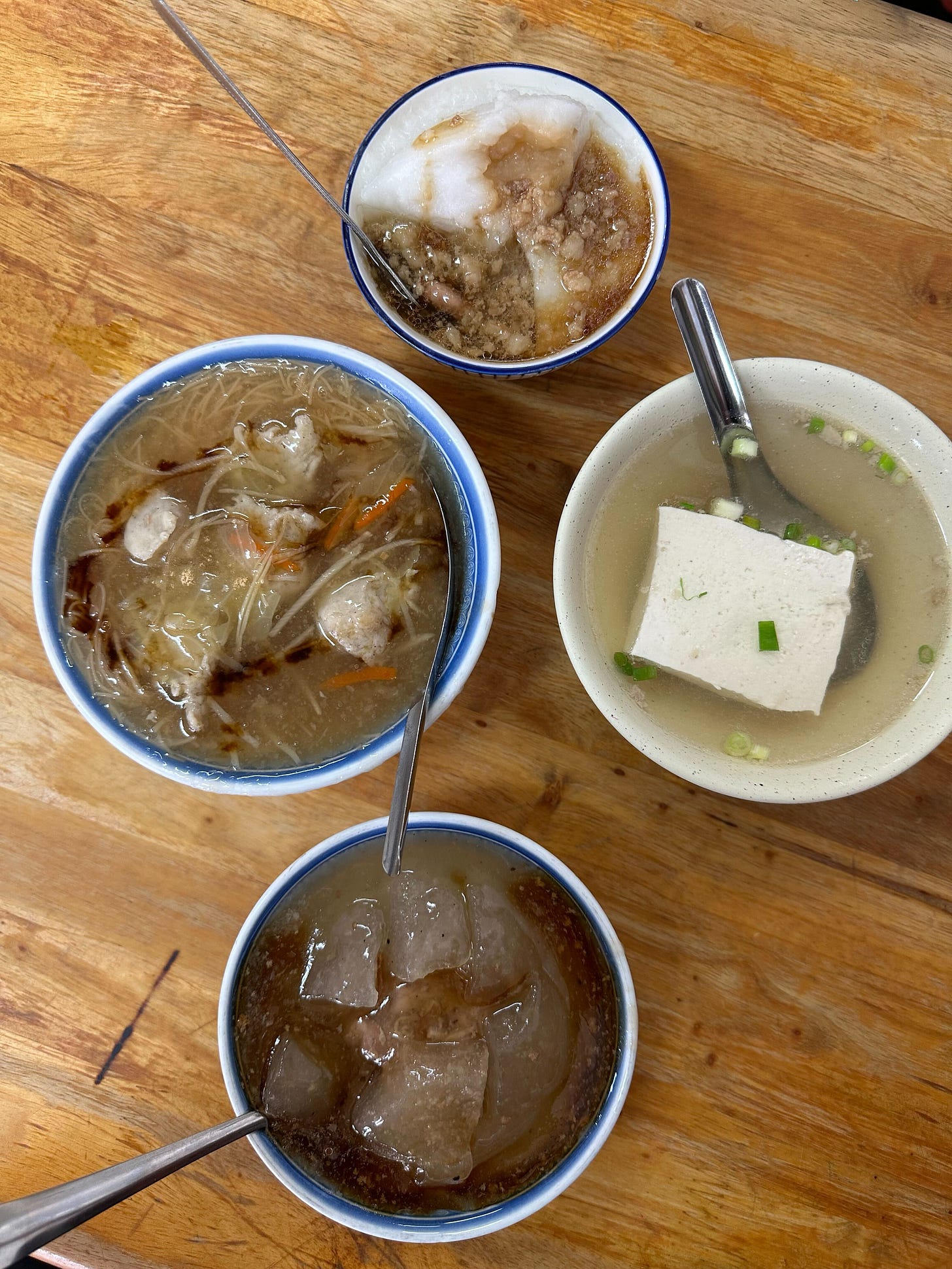
Aficionados will wax on about their favorites, and rightfully so. As I mention in the show, I love them all equally. You cannot count on me to break a tie. I will never actually tell you what my favorite one is for fear of angering the bawan gods, not to mention my discerning Taiwanese friends.
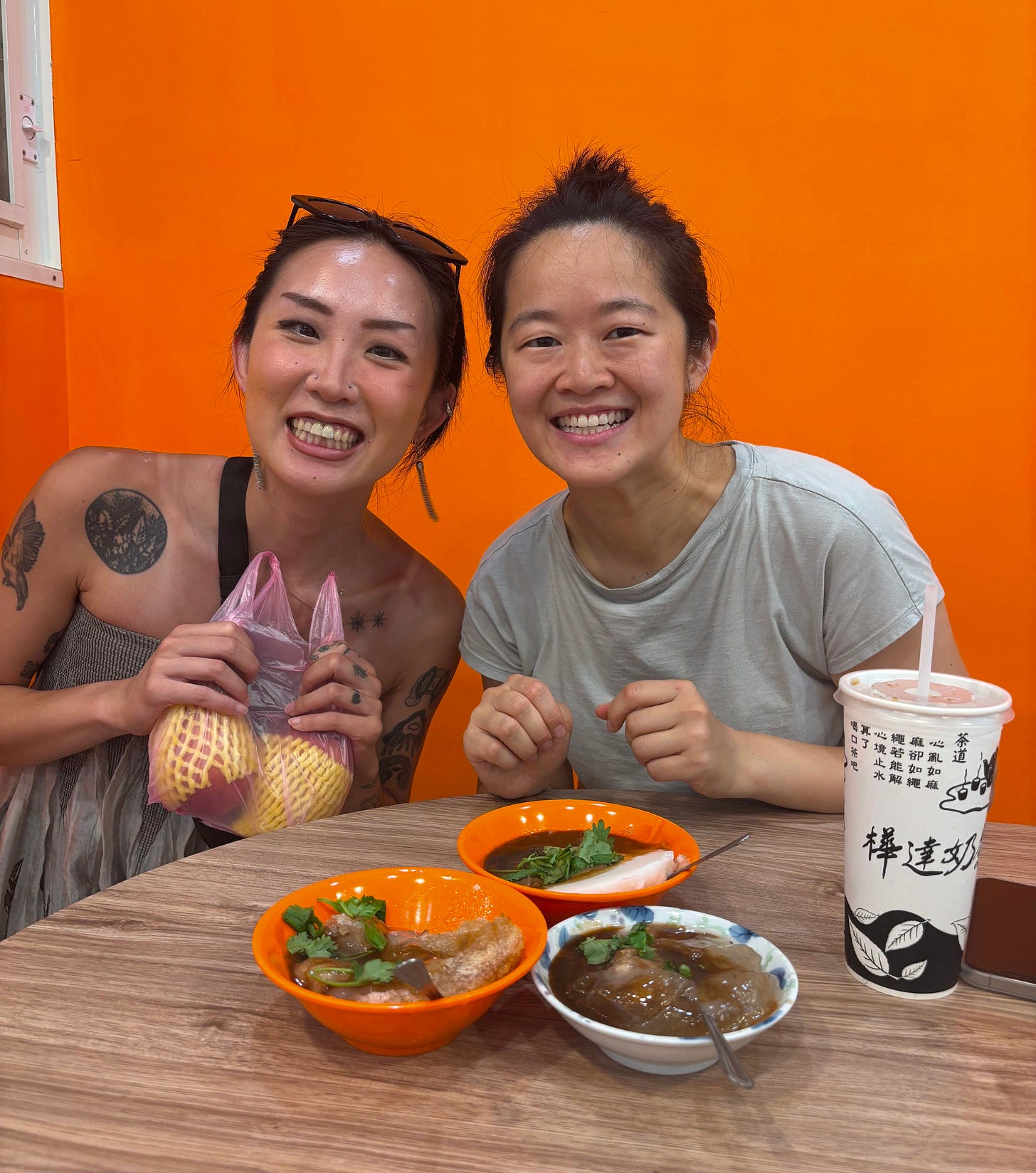
But, there is one version that I feel pretty comfortable making, and it’s the one I conjured for this show. It’s a fairly common style of filling, featuring pork, shiitake, bamboo, and shallots. The dough leans more heavily into sweet potato starch than rice flour, which is a personal preference of mine (I like the chew, I like the clarity). And, it features sea mountain sauce, or 海山醬, a tangy, unexpected combination of miso, tomato, chili sauce, and soy paste.
Watch me make it:
COOKING WITH STEAM Season 2 Episode 01
Taiwanese Bawan (Crystal Dumpling)
好蒸氣 第二季 01 | 肉圓
sponsored by Tatung Taiwan
The Recipe
As mentioned, the recipe I present in the video is shaped by memory, personal preferences, and (largely) constraint. I choose to steam only rather than deep fry, for convenience in the home kitchen. I will never omit shiitake mushrooms, bamboo shoots, shallots, or paper shrimp. I opt for a looser filling that reminds me of the bawan I had in Beidou, but I make a sauce inspired by the tomato-leaning version I had in an alley with my uncle in Taipei.
One of my favorite things about bawan is how easy it is to reheat. It’s a perfect batch food. Steam forty one weekend, freeze them, and have bawan all year. Steam them to reheat from the freezer and dress with sauce.
If you’re craving deep-fried bawan, you can fry them up after you steam them. Easy as pie, really, except I don’t have a true exhaust in my NYC apartment, so I try to avoid it for the sake of the smell of our clothes.
One last tip: serve this with a fork. Your diners will thank you, but it’s also the Taiwanese custom.
Hope you enjoy this as much as I do.
Ingredients and Equipment
I love to show off my collection of ceramics, props, everyday objects, and kitchen tools on the show, many of them gifted by friends or collected personally over the years. Here’s a little more information on what I used this episode.
The gray and blue striped bowl used to hold the shallots was made by Taiwanese-American ceramicist Debbie Carlos. The green, red, and blue speckled dishes were made by Alice W Chai of MAT Ceramics, also a Taiwanese-American ceramicist. Finally, the mise bowls for the flour and the final serving bowl for the bawan were made by my friend Matthew So.
For the recipe, I use the 11-cup Tatung Steamer, outfitted with a Bamboo and Cypress Steamer Set, to steam the bawan. To chop, I use our Maestro Wu Vegetable Cleaver on a round ironwood cutting board, purchased from an Asian grocery store in Detroit over 15 years ago.
And, for that classic bawan flavor, I incorporated a few things from Yun Hai Shop, like dried shiitake mushrooms, Firewood Soy Sauce, Miso Soy Paste, and Nyonya Garlic Chili Sauce.
Please reach out with any other questions on sourcing or ingredients. Happy to help, as always.
Gratitude and Acknowledgements
We couldn’t have done this without the support and passion of our friends and community. So much love and gratitude to Night Shift, who produced this, and all our creative collaborators for giving the show its unique voice.
Credits
Produced by Night Shift and Yun Hai
Made possible by Tatung Taiwan
Team:
Lisa Cheng Smith, host
Jessica Wang, guest talent
Jessie YuChen, food stylist & guest talent
Nicole Wang, culinary assistant
Amalissa Uytingco, culinary producer
Sam Broscoe, producer
Alec Sutherland, director & editor
Nathan Bailey, director of photography
Rob Woods, camera operator
Taylor Dekker, camera operator
Alexandra Egan, art director
Kyle Garvey, sound mixer
Rebecca Alexander, hair and makeup
Dustin Wong, music
O.OO, graphics
Jil Tai & Ben Hill, motion design and title sequence
R. Hollis Smith, mix
Jinho Myung, editor
Our Set
Our set features props from Taiwanese, Taiwanese-American, and international friends worldwide, creating those Taiwancore vibes we love so much at Yun Hai.
Thank you for the beauty Mikey Chen, Lillian Li, Emilie Liu, Debbie Carlos, Matthew So, Kelli Cain, Material Kitchen, Mogutable, Felicia Liang, Sam Tilney, Lulu Yao Gioiello, Grace Jung, Eric Sze, Julianne Ahn, Alice Chai, Stephanie Smith, Rio Chen, and Leh Lin.
And much gratitude to our friends who contributed to wardrobe: Everybody World, Judi Rosen, Whimsy and Row, RMS Beauty, and Christine Mai Nguyen.
Special Thanks
Russell Wang, Maggie Chang, Shirley Liu, Ivan Wu, Feng Hsieh, Hollow, Chris, Leon, Simon, Agnes, Jim, Lillian Lin, Jasmine Huang, Natya Regensburger, Jeremy Hersh, Cat Yeh & the entire Yun Hai Team, our partners, and our community.
Soy Sauce Pour Spout
Ever since bringing on Yu Ding Xing's collection of Taiwanese soy sauces, I’ve been dreaming of a dispenser for them. Well, the prayer has been answered, because the third-generation brewers of Yu Ding Xing have worked tirelessly on a pour spout designed to custom fit their bottles. It’s cute—a great maroon color with a little cap that mimics the form of their terracotta brewing vessels.
I’ll probably never stop putting my finger over my rice wine bottle to slow the flow (alcohol kills germs yo), but for soy sauce, this is my new go-to. I wish I would have had it on set this time, the perfect enabler of cooking by feel, impulse, and without measuring at all.
The patented shape slows down the flow, so the bottles can be used to dispense even a small amount of soy sauce. It’s made of heat resistant, food-grade silicone, and seals with an airtight lid that keeps your soy sauce fresh. And, it’s dishwaser-safe. Bing, bong, boom.
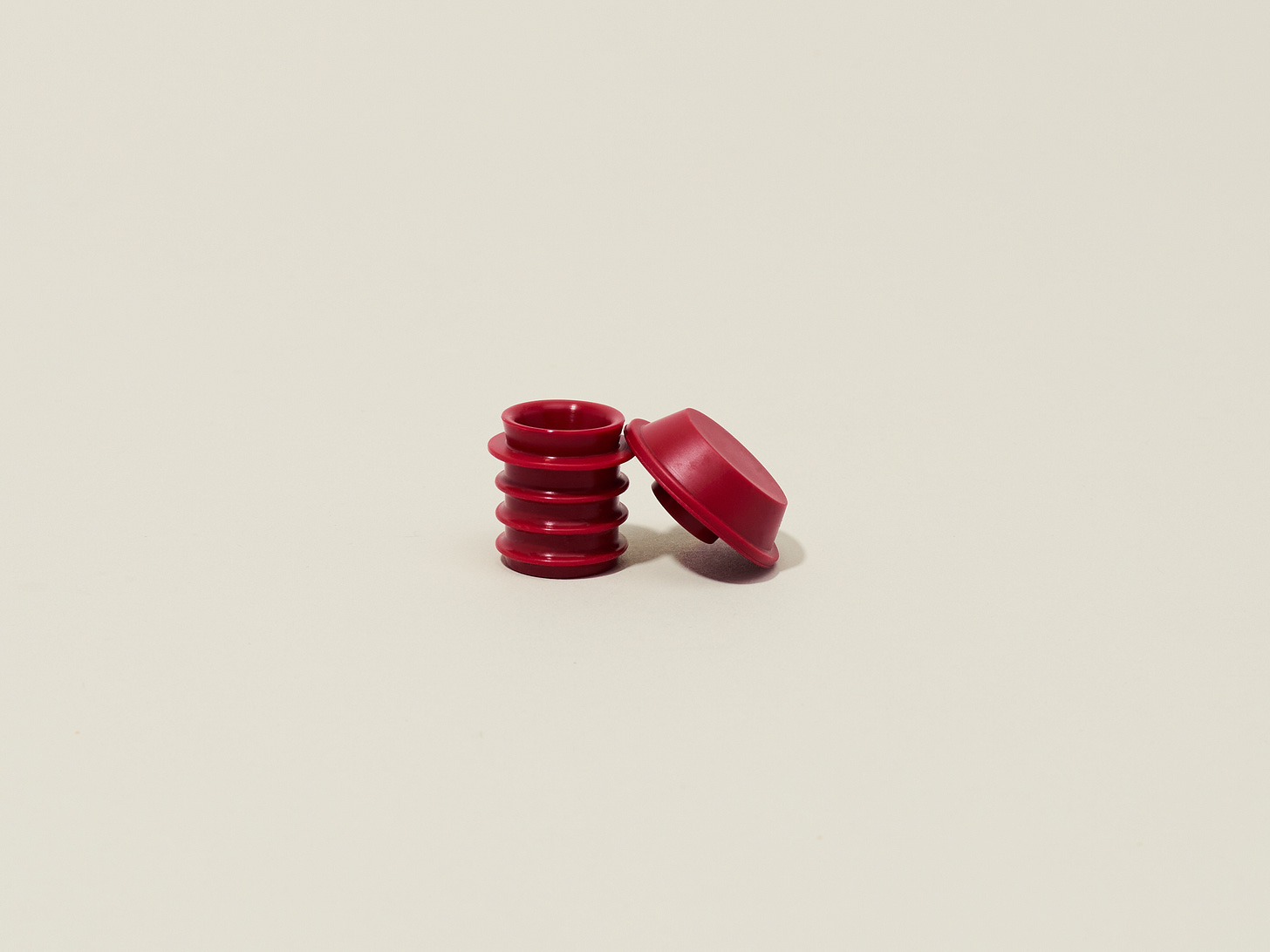
Added bonus: it will fit any bottle opening with an inner diameter of 17-19 mm, so when you’re done with the soy sauce (and before you get more) try it with another oil, wine, or vinegar in your pantry. Thank you, Yu Ding Xing, for this fabulous design!
Save $1 on one pour spout for each bottle of soy sauce purchased. Discount applies automatically in cart. Not suitable for soy pastes, which already flow slowly.
It’s Mooncake Season
Save the Date for a Mid Autumn BBQ at Yun Hai Shop with Win Son on October 10th from 6-9 pm at our Brooklyn storefront, which also happens to be Double Ten Day, a national holiday in Taiwan.
On Saturday, September 27th (tomorrow), Bay Area-based vegan bakery Little Moon Bakehouse is popping up at our storefront from 10am-3pm with mooncakes: red bean ($5 each), black sesame ($5 each), and a mini mooncake sampler set of five ($28). Limited supplies available.
Also tomorrow, if you’re in the Bay Area, we’ll be tabling at the Moon Festival Carnival in Cupertino, from 10am-5pm! Stop by for Taiwanese dried fruit and jams, and stay for the performances and activities.
And you’ll probably recall those beautiful mooncakes we sold and shipped last September. This year, you can buy a set directly from Foundry Bakery, who ships nationwide.
Your Bawan Buddy,
Lisa Cheng Smith 鄭衍莉
Written with editorial support by Amalissa Uytingco, Jasmine Huang, and Lillian Lin. If you enjoyed this newsletter, please share it with friends and subscribe if you haven’t already. I email once a month, sometimes more, sometimes less. For more Taiwanese food, head to yunhai.shop, follow us on instagram and twitter, or view the newsletter archives.




